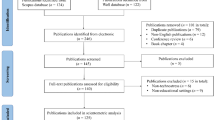Abstract
The evolution of post-industrial society is resulting in a `knowledgeeconomy.’ The changes involve `knowledge workers' in contrast to `manualworkers' of the past industrial economy. The quantity and quality of knowledgeworkers will determine success in national borderless competition. Althoughthe United State's recent prosperity and near perfect employment rate areexemplary, the technology leading to this success has been developed andshared by traditional industrial powers, i.e., Japan and France, and mid-techpowers such as South Korea.This paper examines methods by which South Korea incorporates Americanapplications of the knowledge economy into its system. The interdisciplinaryapproach includes sociological, linguistic, educational, and ethical elements.Suggested methods include double loop sharing, knowledge management withelectronic support systems, professional journals, and professionalinternational conferences. This paper offers a brief history and synopsis ofcurrent developments in knowledge-based systems, and suggests South Korean andAmerican applications. Recommendations also include the emphasis on Englishas the primary language to improve Korean communication among government,industry, and academic entities.
Similar content being viewed by others
References
Argyris, C. and D. Schon (1996). Organizational Learning II: Theory, Method and Practice. Reading, MA: Addison-Wesley.
Bulgelman, R. A. et al. (1996). Strategic Management of Technology and Innovation, 2nd edn. Chicago: McGraw-Hill/Irwin.
Business Week, Asia Edition (August 1998). Special Double Issue on the 21st Century Economy. NY: McGraw-Hill.
Cortada, J. W. (1998). Rise of the Knowledge Worker. Boston: Butterworth-Heimemann.
Evans, P. et al. (1997). ‘Strategy and the new economics of information.’ Harvard Business Review.
Huh, C., C. Kim, C. Har and C. Jin (1993). ‘The receptivity of information technology in American management education.’ Proceedings. Beijing: Pan-Pacific Conference X, 684–687.
Huh, C. (1993). ‘A comparative analysis of the impact of microcomputer applications/ information technology on business education: a comparative study of four nations.’ Proceedings. Washington, DC: Decision Sciences Institute National Convention.
Huh, C. (1994). ‘A multidimensional research on the impact of culture on the information society in Korea.’ Report. Seoul: The Korea Research Foundation.
Huh, C. (1996). ‘The present situation and prospect of interdisciplinary research in Korea: history, status, and prospect.’ Journal of the Multidisciplinary Research Council of Japan 33, 574–580.
Huh, C. and S. Kim (1998). ‘A study on the impact of the culture in the process of promoting an information society and a competitive edge.’ Sungkok Journal 29 (2), 293–350.
Hyundae Economic Research Institute edited and translated (1999). Collection of Articles from Harvard Business Review on Knowledge Management. Seoul: 21st Century Books.
Kang, S. (1997). ‘Structure and social responsibility of the labor union.’ Proceedings. Seoul: Korean Industrial Relations Association.
Klein, D. A. (1998). Strategic Management of Intellectual Capital. Boston: Butterworth-Heimemann.
Laudon, K. and J. Laudon (1998). Management Information Systems: New Approach to Organization and Technology, 5th edn. Upper Saddle River, NJ: Prentice-Hall.
Lee, S. (1999a). Methods of Knowledge Management. Seoul: Samsung Economic Research Institute.
Lee, S. (1999b). Understanding Knowledge Management. Seoul: Samsung Economic Research Institute.
Librin, A. (1999). Nine Years of American Economic Boom Are Beyond Common Sense - The Bases of Economic Principles Are Shaken. Choongang Ilbo Daily Newspaper, October 10.
Mayer, L. (1999). Nine Years of American Economic Boom Are Beyond Common Sense - The Bases of Economic Principles Are Shaken. Choongang Ilbo Daily Newspaper, October 10.
Meyers, R. S. (1998). Knowledge Management and Organizational Design. Boston: Butterworth-Heimemann.
Na, S. (1998). Knowledge Management. Seoul: 21st Century Books.
Neef, D. (1998). The Knowledge Economy. Boston: Butterworth-Heimemann.
Neef, D. et al. (1998). The Economic Impact of Knowledge. Boston: Butterworth-Heimemann.
Osborn, R. N. et al. (1990). Organization Theory. New York: John Wiley and Sons.
Park, K. and T. Son (1996). The Fifth Discipline: Field Book. Seoul: 21st Century Books.
POSCO Economic Institute (1998). Knowledge Management. Seoul: Denan Publishing.
Ruggles, R. L., III (1998). Knowledge Management Tools. Boston: Butterworth-Heimemann.
Samsung Economic Research Institute (1996). Learning Organization: Theory and Practice.Seoul: Samsung Economic Research Institute.
Shiotsugu, K. and J. Ha (1997). ‘Strategic characteristics of internationalization: Comparative analysis between Pusan and Northern Kyushu.’ Proceedings. Seoul: Second Japan-Korea Symposium on Organizational Studies.
Snow, M. et al. (1997). ‘Organizing in the knowledge age: anticipating the cellular form.’ Academy of Management Executive 11, 4.
Varian, H. R. (1998). ‘Buying, sharing and renting information goods.’ Paper. Seoul: Korea University Institute of Economic Research, June.
Zuboff, S. (1992). In the Age of the Smart Machine: The Future of Work and Power. New York: Basic Books.
Author information
Authors and Affiliations
Rights and permissions
About this article
Cite this article
Huh, C.B., Kim, C.W. & Sikula, A. A Comparative Analysis of Korean and American Management Education: A Knowledge-Based Odyssey. International Journal of Value-Based Management 15, 1–17 (2002). https://doi.org/10.1023/A:1013081422389
Issue Date:
DOI: https://doi.org/10.1023/A:1013081422389




